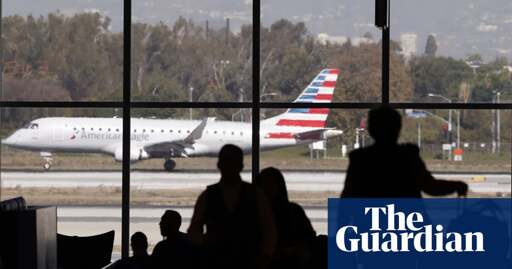United, Southwest and Delta have announced they will be reducing flights amid continuing government shutdown
United, Southwest and Delta airlines began cancelling flights for Friday in compliance with the Federal Aviation Administration’s directive that will see reductions in flights at 40 major airports from Friday to help address air traffic controller shortage safety concerns as a result of the government shutdown.
The Associated Press published the list after airline regulators identified “high-volume markets” where the Federal Aviation Administration (FAA) says air traffic must be reduced by 4% by 6am ET on Friday, a move that would force airlines to cancel thousands of flights and create a cascade of scheduling issues and delays at some of the nation’s largest airports. The FAA is also imposing restrictions on space launches but not imposing any cuts on international flights.



I looked up the figures for tfl buses and underground, and buses are less expensive to run - in the last year they had almost identical operating costs but buses served a lot more passenger distance. (Former info on their budget, latter is here https://tfl.gov.uk/cdn/static/cms/documents/travel-in-london-2024-trends-in-public-transport-demand-and-operational-performance-acc.pdf page 8)
I would expect long distance trains to have higher costs due to higher speeds causing higher wear and hence maintenance requirements, except for driver costs. But note that an intercity train also has a conductor and more station staff. Of course if you have a given rail network and can run the trains faster, you will save a lot on staff costs.
That’s really interesting, I wouldn’t have assumed that given the passenger counts on trains, the longer lifespan of the equipment, and the increased passenger/personnel ratio.
I guess train maintenance can be more expensive than bus maintenance, though bus engines require more complex maintenance as far as I know. I guess the capital costs of the vehicles and the rails maybe outweigh tee capital costs of the buses.
I would be interested to see a further breakdown. My guess is it’s the track and associated equipment that makes the biggest difference but idk. Anyone who’s been to London knows that there always delays due to “signal failure” so I’m guessing it’s that…
I suppose for a fair comparison you need to count the contribution of buses to road wear but I have no idea how to do that properly